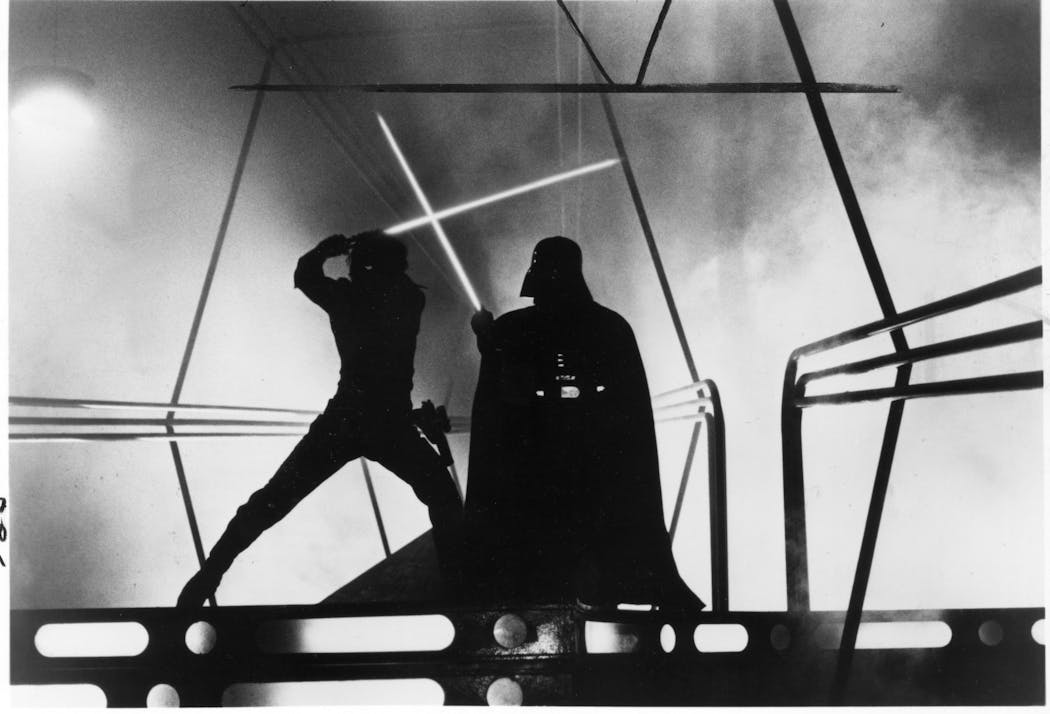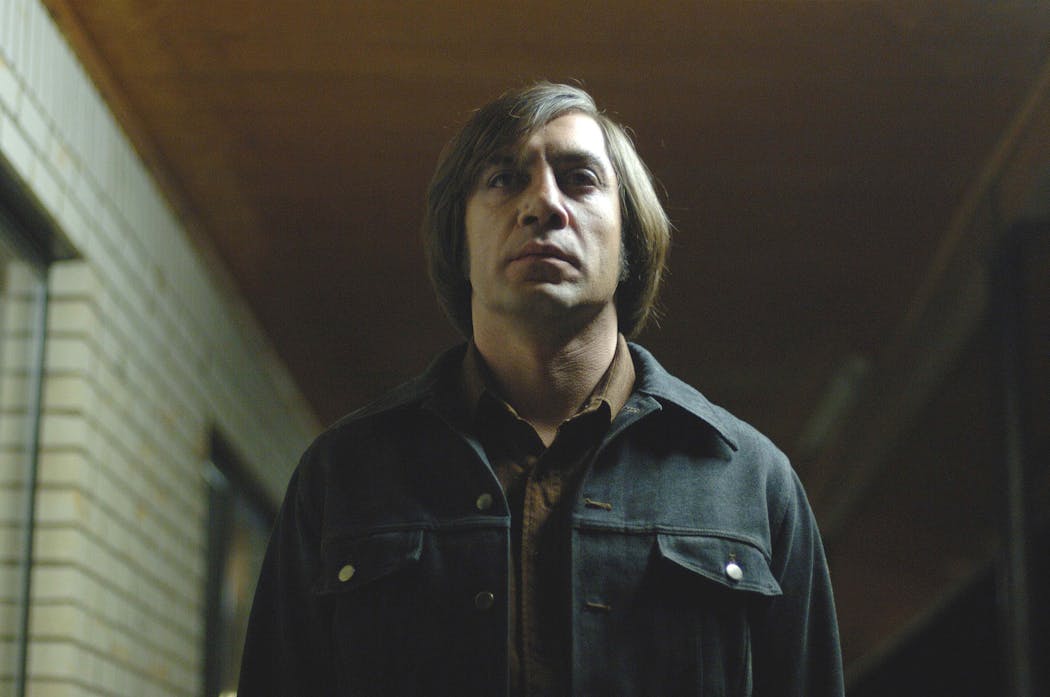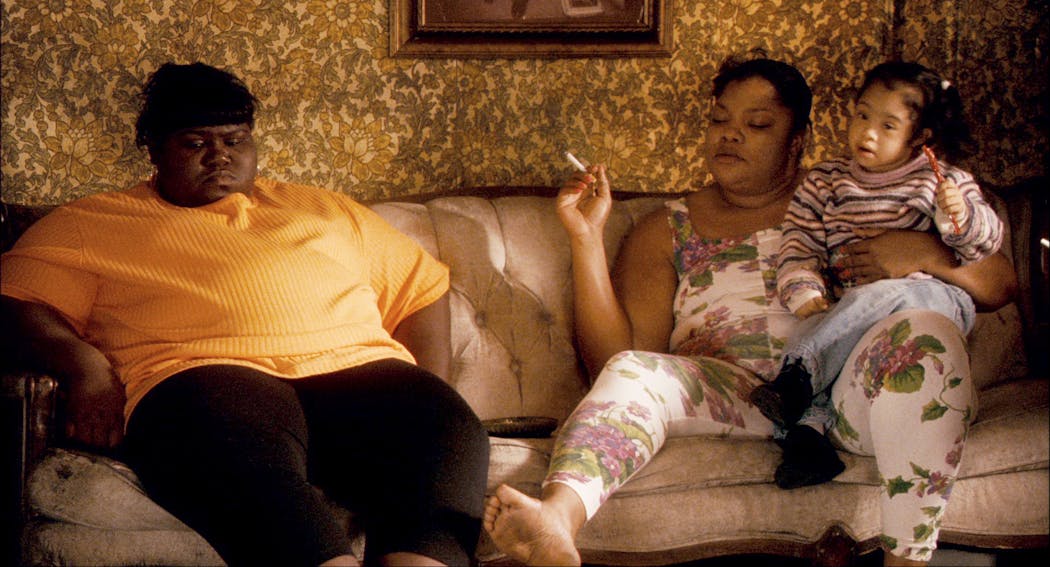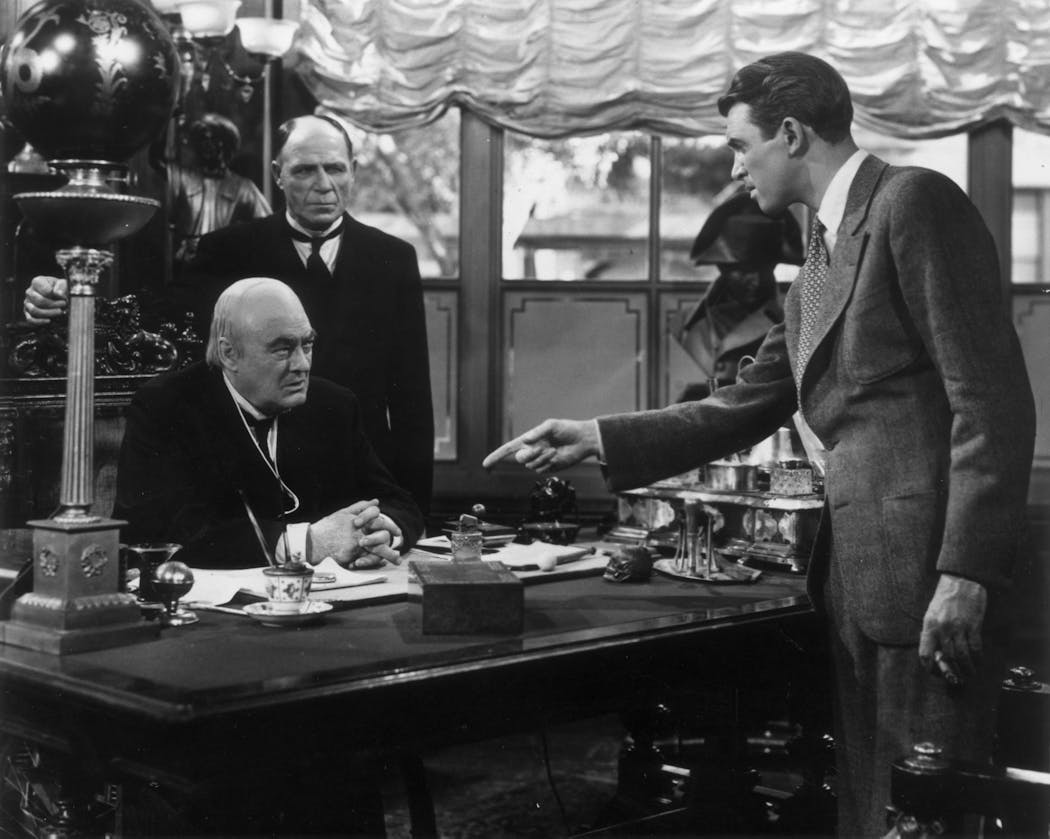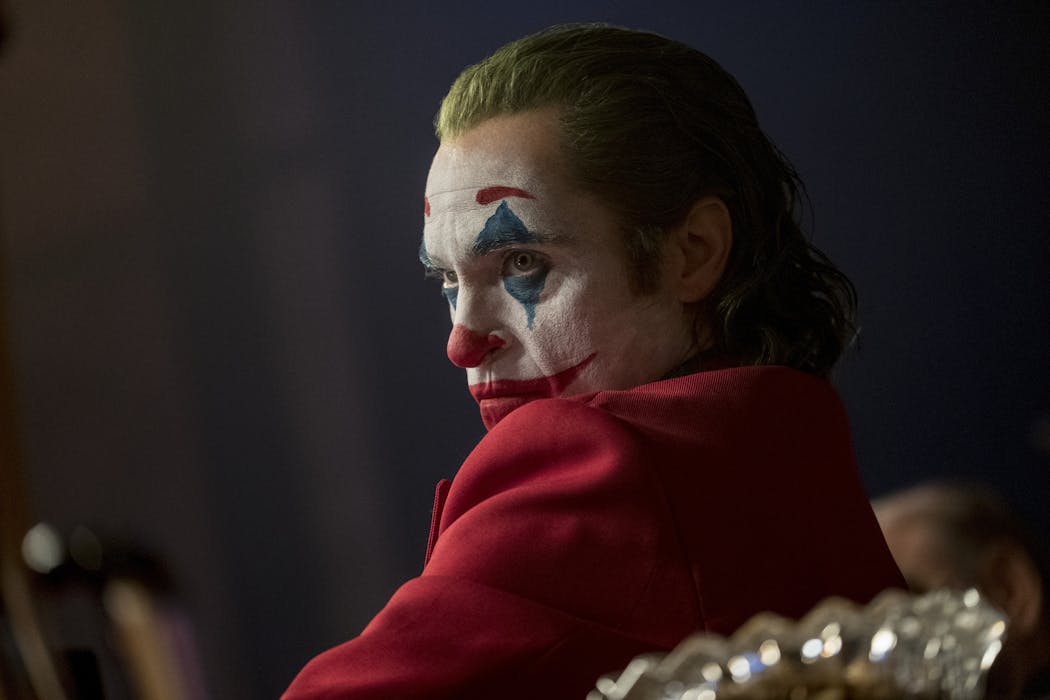What is so good about being bad?
We root for James Bond and "Alien's" Ripley to win, but they're at their best when they're matched with a charismatic baddie. Sure, we know Bond will triumph in the end, but we need to believe — at least for a couple of hours — that the villain will get close to shutting down the power grid or laser-beaming the Earth's core or whatever it is he wants to do. (Unfortunately, it is always a "he" in Bond movies; how great would Anjelica Huston or Jessica Lange have been as a 007 archenemy?)
Bond doesn't mess with gray areas; we always know the titular Goldfinger and Le Chiffre from "Casino Royale" are rotten to the core. They're the kinds of bad apples we hope will be devoured by wild boars, a boldly hissable form of villain that can be loads of fun.
But so can a more human kind of evil. Think of Barbara Stanwyck's Phyllis Dietrichson in "Double Indemnity." She's up to no good but Stanwyck is so seductive and funny that we're almost willing to overlook that she wants her inconvenient husband and dopey lover dead. Part of the kick of the movie is that nobody can keep up with Phyllis, so in some skewed moral universe, we cheer for her. (Depending on the movie, Hannibal Lecter also qualifies as a bad guy whose side we take.)
The bad guy is often more mysterious than the good guy, so rooting for them can be a fun way to watch a movie. What if I understand where the "Mean Girls" are coming from when bland Lindsay Lohan walks into their lunchroom? What if I was ignored for so long that it was hard to relinquish the little power I finally acquired, like Nurse Ratched in "One Flew Over the Cuckoo's Nest"? What if, like Norman Bates, my "villainy" is a product of abuse suffered since the day I was born?
I'm not even sure Anthony Perkins' Norman is the villain in "Psycho," or that Margaret Hamilton's Wicked Witch of the West is in "The Wizard of Oz." They're another kind of bad guy, written and acted so we relate to what makes them bad. Of course the witch is miffed — Dorothy killed her sister. If Judy Garland weren't so infuriatingly lovable in "Oz," some might say she's the antagonist.
Perhaps identifying the villain depends entirely on where we pick up a story: A younger Norman Bates might have been a great guy to go fishing with, and "Mean Girl" Regina George probably became a better person later when she figured out what to do with her anger.
Our sympathies, or lack of them, can also change our take on bad guys. I considered two Kevin Spacey performances — "The Usual Suspects" and "Seven" — for this list of the best villains, but they're hard to watch, given what we've subsequently learned about an actor whose malefactions are all too real.
That's why these seven extraordinary bad guys howled their way out of the world of fiction.
Cruella de Vil, '101 Dalmatians' (1961)
My favorite villain is also my first. I have vivid childhood memories of Cruella, with her slash of red lipstick and evil couture, terrorizing a kind family and their puppies. Being literally a cartoon makes her glamorously awful; obviously, an actual dog-killer is grotesque. All I know is that we're supposed to love to hate her but that's not how I feel. I unreservedly love every drag-queen-inspiring, command-barking, cocktail-swilling inch of her.
Darth Vader, 'Star Wars' (1977)
The late David Prowse gets little credit for the physical presence of the obsidian supervillain, but it's hard to imagine Vader with anyone other than James Earl Jones' voice. The actor, who almost always plays good guys, adds layers of possibility with his authoritative bark. We've learned more about Darth in subsequent "Star Wars" movies, but that sound anchors him somewhere between known and unknowable.
Anton Chigurh, 'No Country for Old Men' (2007)
Oscar winner Javier Bardem makes hushed, calm Chigurh the anti-Norman Bates, terrifying because we know nothing about him (the same was true of Bardem's "Skyfall" villain). Seeming to have materialized out of nowhere in both Cormac McCarthy's novel and Joel and Ethan Coen's movie, he appears human but his interactions with others make us wonder how anyone could turn out like this. As a result, Chigurh underscores the scariest thing about evil: We don't know where it comes from.
Mary Lee Johnston, 'Precious' (2009)
The genius of Mo'nique's Oscar-winning performance is how it straddles a line. The over-the-top nastiness of abusive mother Mary would feel at home in a Bond film, but the pain she reveals in scenes with desperate daughter Precious (Gabourey Sidibe) is real. Ultimately, those forces come together in Precious' determination to break a cycle of villainy the movie implies is much like a cycle of abuse.
Scaramanga, 'The Man With the Golden Gun' (1974)
James Bond faced plenty of top-notch lowlifes, but Christopher Lee's "most dangerous man alive" goes on the Mount Rushmore of maniacs because of his elegance, wit and iconic voice.
Mr. Potter, 'It's a Wonderful Life' (1946)
Hear me out: Lionel Barrymore created the template for Bardem's blank nastiness. As he tries to suck the life out of a New York hamlet and its middle-class residents, Potter owes something to the silent-movie tradition of villains who delight in their evil. Director Frank Capra knows Potter horrifies us because, like Jimmy Stewart's George Bailey, we can't comprehend how he sprang from the same world we did. There's probably a Potter origin story to explore in a latter-day "Wonderful Life" prequel; let's hope no one makes it.
The Joker, 'The Dark Knight' (2008)
There's a reason both Joaquin Phoenix and the late Heath Ledger won Oscars playing this Batman foe (and Jack Nicholson should have): He looks like a cartoon but his psychology is so rich ("I'm not a monster. I'm just ahead of the curve") that he forces his way to the forefront of every story he's a part of.
Chris Hewitt • 612-673-4367
